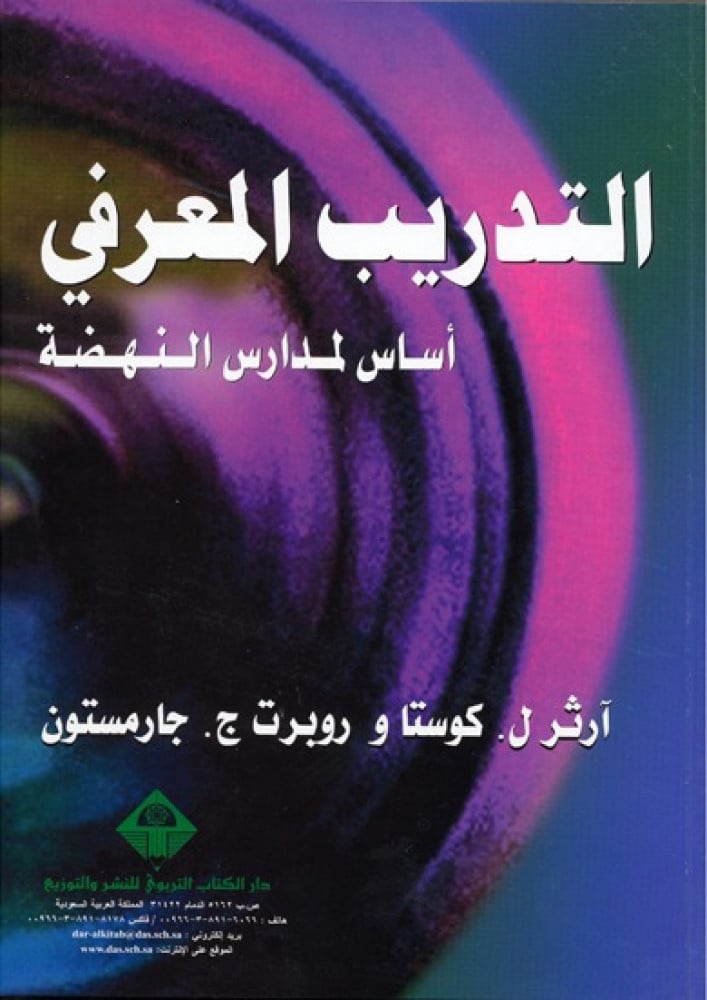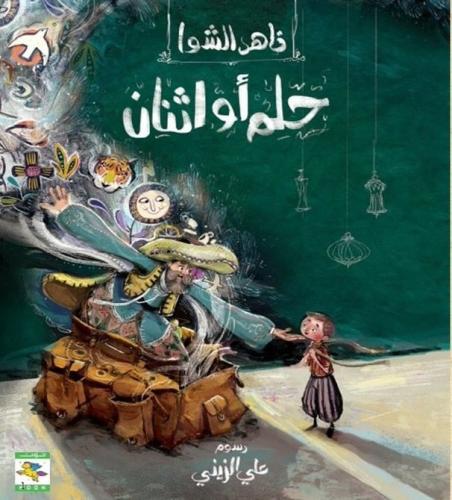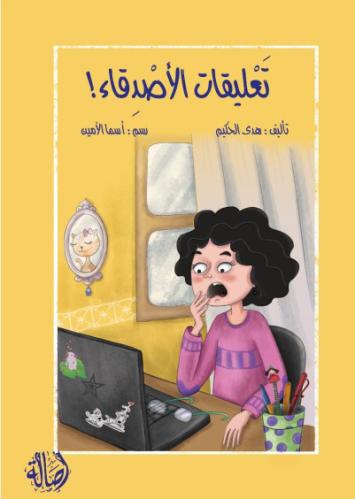AVAILABLE IN ARABIC
About This Book
A must-have resource for coaches, leaders, and teams, this book covers approaches for boosting professional growth and macrostrategies that are responsive to student needs. Learn how to offer targeted feedback to teachers, empowering them to identify how they can improve their knowledge and skill. Step-by-step guidelines will help teachers increase their performance on the 280 research-based strategies from Becoming a Reflective Teacher.
Benefits
• Learn how coaches can help K–12 teachers employ the 41 elements of effective teaching in their classrooms using over 280 research-based strategies.
• Explore research, teacher actions, desired student responses, extra support/scaffolding, and extensions for each of more than 280 strategies.
• Examine various ways schools and districts can provide coaching to teachers.
Topics : School improvement
Table Of Content
List of Tables and Figures
Foreword by Michael Fullan and Andy Hargreaves
Preface
What Is New in This Third Edition
A Historical Perspective on Cognitive Coaching
Our Beliefs
Getting the Most out of Using This Book
About the Language in This Book
Acknowledgments
Cognitive Coaching Resources
PART 1: EXPLORING THE MEANINGS OF
COGNITIVE COACHING
1 Discovering the Meanings of Cognitive Coaching
Cognitive Coaching: A Revelation
A Snapshot of Cognitive Coaching
Why Learn to Cognitively Coach?
Components of the Cognitive Coaching Model
Foundations of Cognitive Coaching
Historical Background of the Model
Distinctions among Support Functions
How Cognitive Coaching Is Unique
The Mission
Holonomy: Transcending Autonomy and Interdependence Conclusion
2 Identity
Three Forms of Identity
How Identity Is Funned
Systems of Learning
Elements of Identity
Not Line. but Nonlinear
Identity Changes
Can Behaviors Change Beliefs?
Avenues to Change
The Identity of a Cognitive Coach
Conclusion
3 The Mediator's Skills
Paralanguage
Response Behaviors
Providing Data and Resources
Structuring
Meditative Questioning
Conclusion
4 Mediating for Self-Directed Teaming
The Processes and Role of Mediation
The Mediator's Role
Why Mediation Works
Four Capabilities of a Mediator
Conclusion
5 Repertoire of Support Functions
Situational Flexibility
An Exemplary Support System
Mental Prerequisites for Flexibility
Conclusion
PART 2: SOURCES OF EXCELLENCE
6 Developing and Maintaining Trust
Characteristics of Trust
Trust in the Coaching Process
Conclusion
7 States of Mind
The Search for Wholeness
Mediating Resources for Holonomy
Conclusion
8 Teacher Cognition and Instruction
Research on Teachers' Thinking
Findings about Teacher Cognition
Basic Model of Intellectual Functioning
Teacher Knowledge
States of Mind as Qualities of Teacher Excellence
Four Stag. of Instructional Thought
Conclusion
9 The Knowledge Base of Teaching and Learning
What Is Teaching?
Six Domains of Professional Inquiry
Teachers as Continuing Learners
Conclusion
PART 3: ENGAGING IN COACHING
10 Human Diversity in Meaning Making
Understanding Perception
Representational Systems
Cognitive Styles
Educational Belief Systems
Human Variability in Meaning Making
Race, Ethnicity, Nationality, and Culture
Gender
Adult Development: Differ. Ways of Making Meaning
Career Stages
Conclusion
11 The Maps of the Planning and Reflecting Conversations
The Mental Maps of Coaching
The Planning Conversation
The Reflecting Conversation
The Coaching Cycle
Inner Coaching
Conclusion
12 Resolving Problems: The Third Coaching Map
Pacing and Leading
Research: Emotions Mapped in the Body
The Coach's Invisible Skills
Nine Principles of Intervention
Conclusion
13 The Calibrating Conversation
A Third-Point conversation
How Teachers Own Standards
Regions of the Calibrating Map Conclusion
PART 4: THE IMPACT OF COGNITIVE COACHING
14 Research on Cognitive Coaching by Jenny Edwards
Self-Directed Learning
The Five States of Mind
The Impact of Cognitive Coaching on Students
The Impact of Cognitive Coaching on Teachers and Principals Professionally
The Impact of Cognitive Coaching on Staff as a Team
Cognitive Coaching and Supervisory Relationships
Cognitive Coaching in Motoring and Teacher Preparation Programs
The Impact of Cognitive Coaching on Teachers' Personal Lives
Recommendations fee Implementing Cognitive Coaching
Questions for Additional Research
Conclusion
Note
References
15 How Leaders Support Learning in an Agile Organization
Cognitive Coaching: A Higher Purpose
Schools Are Messy Places
leading the Agile Organization
Conclusion
APPENDICES
A How to Make Mode. Leaning Central to School Conversations
B Inner Coaching
C Meditative Questioning
D Calibrating Conversation Script
E Sources of Standards for Teachers' and Leaders' Performance
F Other Resources about Self-Directedness
G List of Videos, Topics, and Length of Time n Minutes
Glossary of Terms
References
Index
About the Authors
About the Authors
Arthur L. Costa:

Arthur L. Costa is a Professor of Education, Emeritus, from California State University, Sacramento, where he taught graduate courses to teachers and administrators in curriculum, supervision, and the improvement of instruction.
He edited the book, Developing Minds: A Resource Book for Teaching Thinking; is the author of The Enabling Behaviors, Teaching for Intelligent Behaviors and Supervision for Intelligent Teaching; and is co-author of Cognitive Coaching and Techniques for Teaching Thinking. He has also written numerous other articles and publications on supervision, teaching strategies and thinking skills.
Dr. Costa has made presentations and conducted workshops for educators throughout the United States and in Canada, Mexico, Europe, Africa, the Middle East, Asia and the South Pacific. He taught in the Bellflower School District, worked as a curriculum consultant in the Los Angeles County Superintendent of Schools Office, and served as Director of Educational Programs for the National Aeronautics and Space Administration for the Western States, and was Assistant Superintendent of the Sacramento County Superintendent of Schools office.
Active in many professional organizations, Dr. Costa has served as president of the California Association for Supervision and Curriculum Development and as president of the national A.S.C.D. from 1988 to 1989.
Robert Garmston:

Bob Garmston is Professor Emeritus, School of Education, at California State University, Sacramento and director of Facilitation Associates, an educational consulting firm specializing in leadership, learning, and organizational development. He is co-developer of Cognitive CoachingSM and co-founder of the Institute for Intelligent Behavior with Dr. Art Costa. He is co-author and co-developer of the Adaptive Schools materials with Bruce Wellman, an initiative developing collaborative groups within schools intent on strengthening student achievement.
Bob Garmston is an award-winning author of books and articles dealing with educational leadership, learning, coaching, and staff development. Formerly a teacher, principal, superintendent and curriculum director, he now consults with schools throughout North America and in Africa, South-East Asia, Eastern Europe, South America, and the Middle East. He lives near Sacramento, California, close to his five children and five (bright and cute) grandchildren.
ISBN: 9960863239
Author: Arthur L. Costa & Robert J. Garmston
Publisher: Educational Book House
Size: 17*24cm
Pages number: 392













